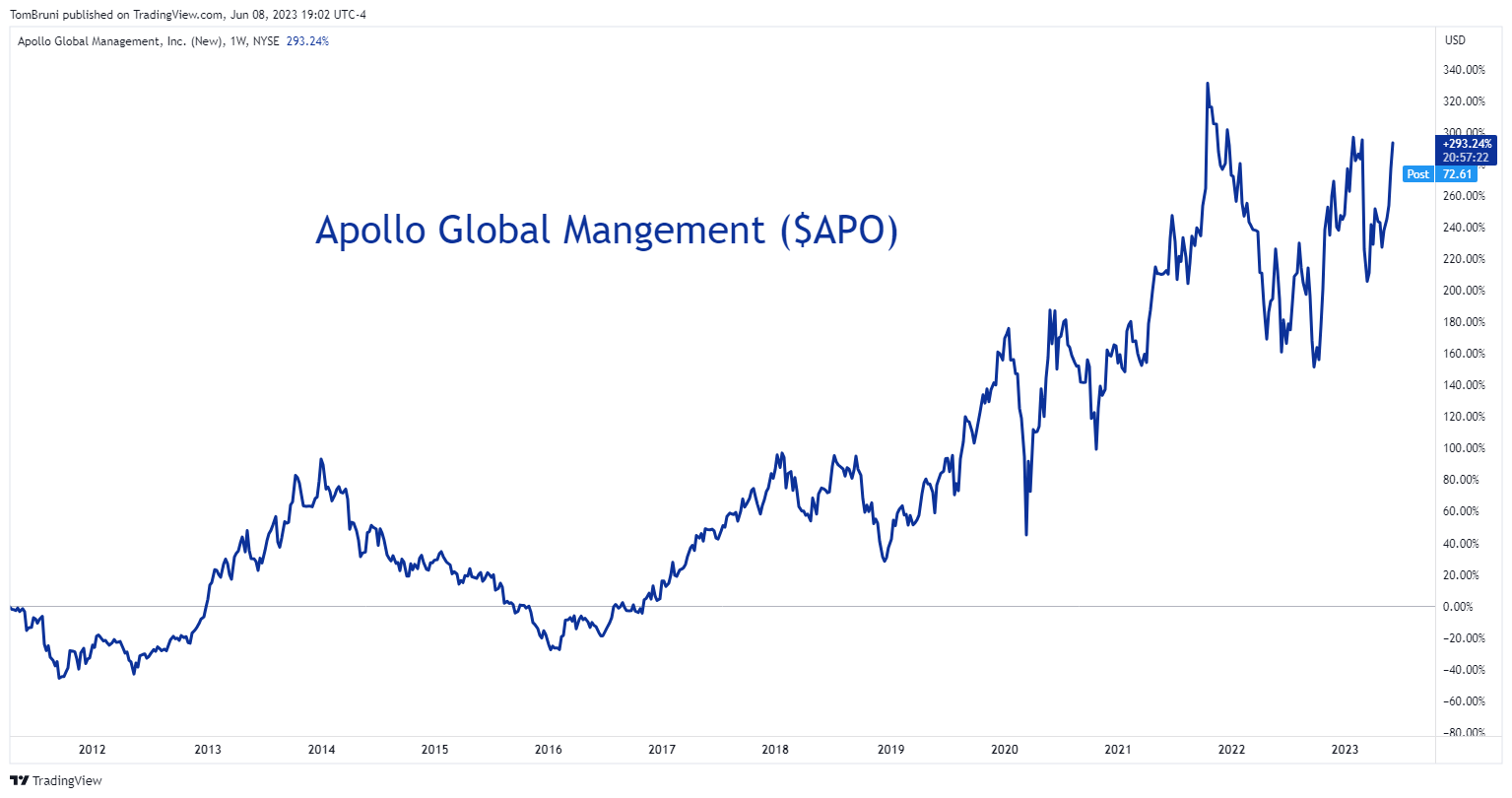At least according to Apollo Global Management’s CEO… 🤔
The private equity giant’s CEO, Marc Rowan, sat down with Andrew Ross Sorkin at the Economic Club of New York this week, spawning several interesting headlines. 😮
His first comment was that he expects a “non-recession recession.” He clarified his statement by saying that he doesn’t see any underlying signs in the economy that demand is deteriorating enough to drag the labor market into recessionary territory. Yes, there may be some weaknesses, but those downticks have essentially brought us back to the same levels we were at about a year ago. So he’s yet to see any significant damage done.
It ultimately goes back to the idea that several big-name investors have floated, that asset values could decline due to higher rates while the real economy continues to hum along. 👌
As for how investors can find alpha in the markets, he thinks many are looking in the wrong places. He claims that the public stock market is a “beta market,” meaning it’s heavily driven by the largest stocks and investor flows that buy low-cost passive index funds. He also cited that the vast majority of public market investors fail to beat their benchmark over any significant period (five, ten, twenty years).
So where is there an edge? Well, as the CEO of a private equity firm, it’s not surprising that he said private markets. Specifically, he’s excited about the emergence of private credit products. 🥳
Access to private markets has grown significantly over the last decade, but some are concerned about the motives. A cynical argument is that fees in the public market space have come down as products and performance become commodities. However, given the lack of standardization in private markets, there’s an opportunity to provide value and charge higher service fees. More optimistic investors say that since companies are waiting longer to go public, investors need to get involved earlier to participate in the growth.
Ultimately, it’s a debate that’s far from settled. But clearly, there’s an appetite for private market products and investments. If there wasn’t, Apollo Global Management’s ($APO) chart wouldn’t look like this. 📈

